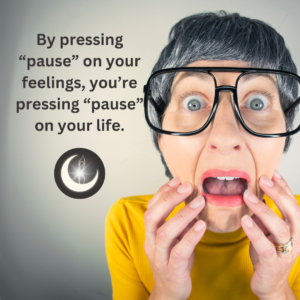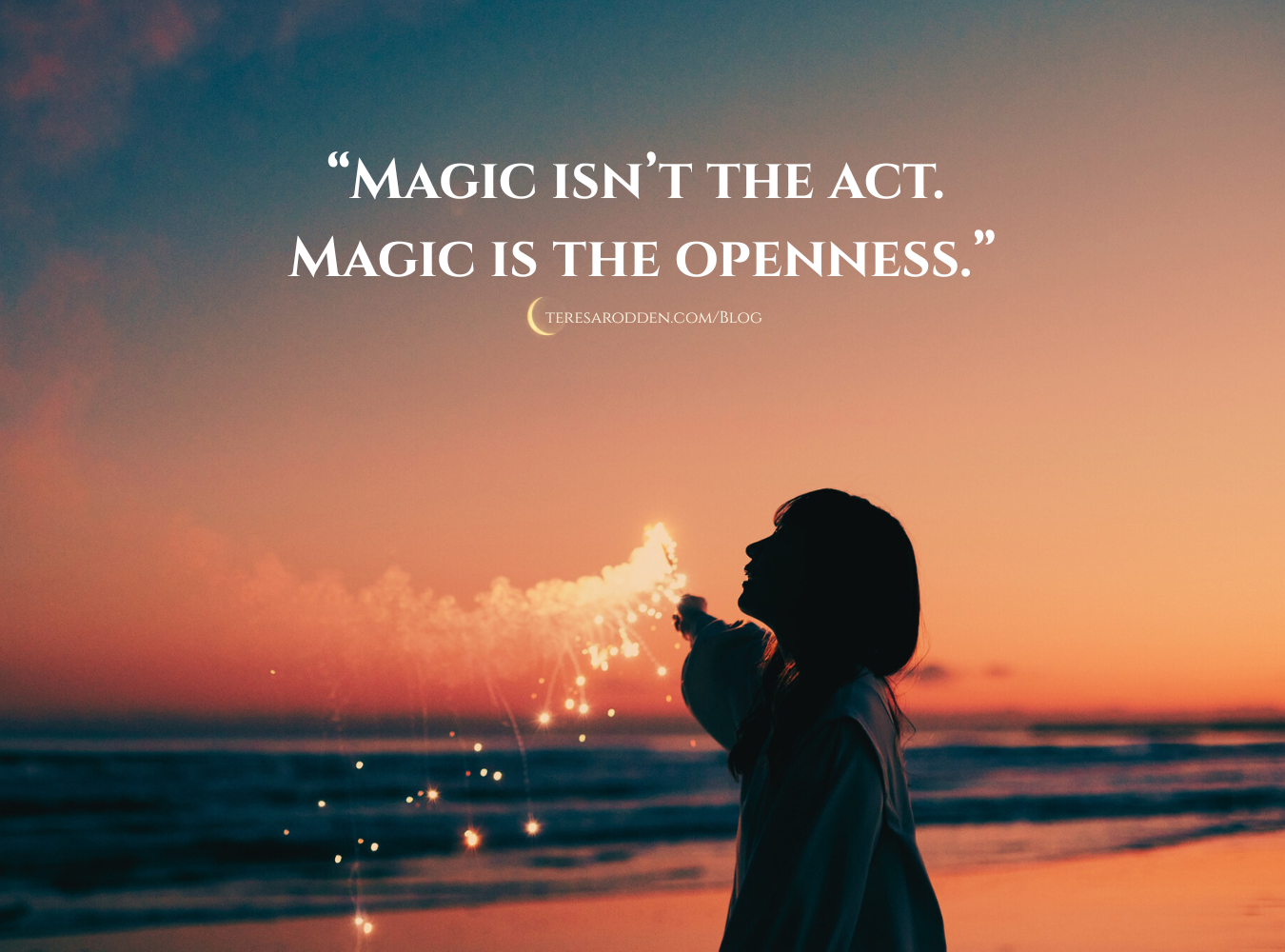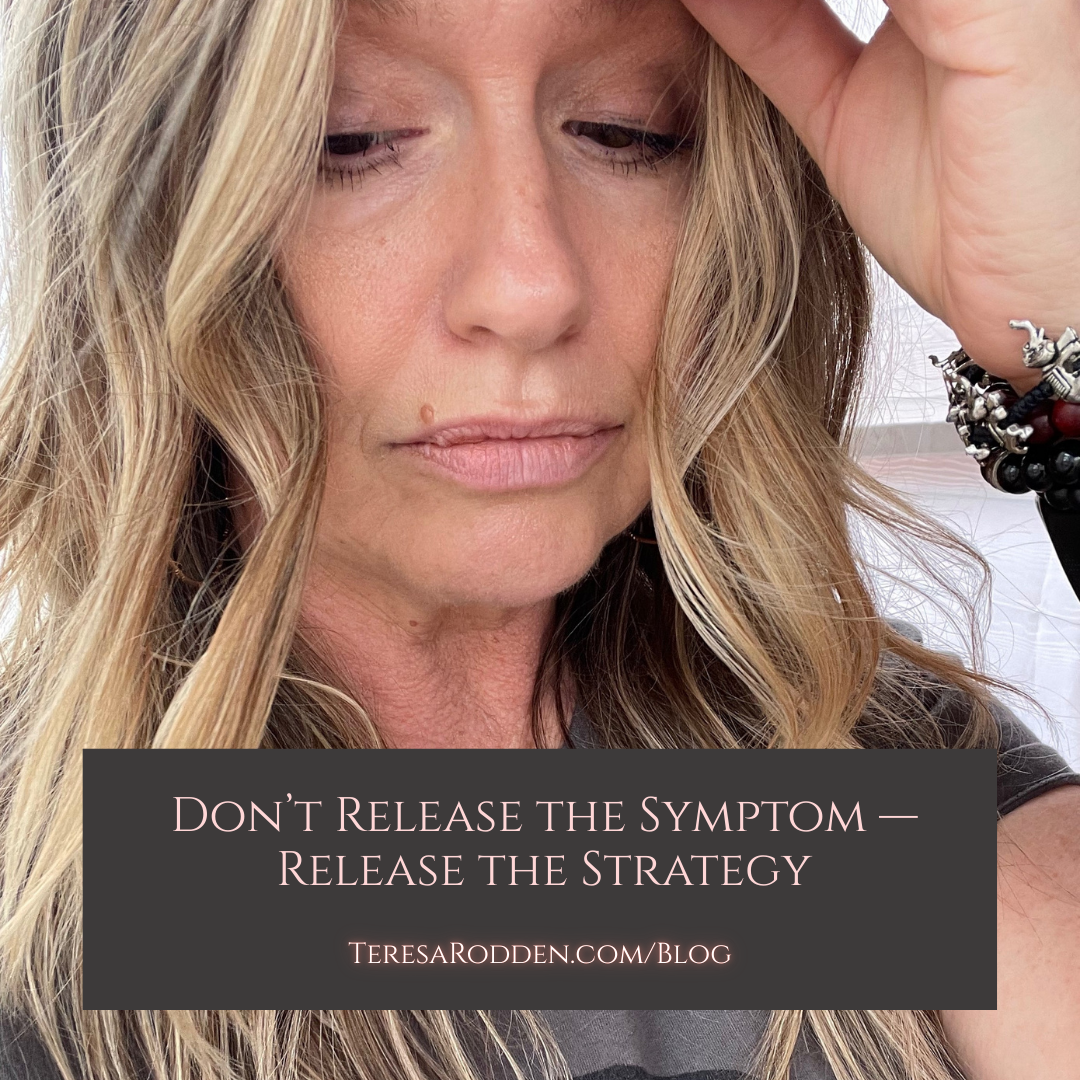The Hidden Cost of Emotional Numbing—and How to Break Free
Have you ever felt like you’re just going through the motions—stuck in a loop of surviving instead of truly living? That’s often the hidden price of emotional numbing.
Emotional numbing is something many women in their prime, being over 45, experience, even if they don’t recognize it right away. On the surface, it may look like reaching for a glass of wine to unwind, zoning out with endless scrolling, or mindlessly eating snacks late at night.
These behaviors might seem harmless or even necessary after a long day, and what the hell doesn’t everybody do it? But often they are symptoms of P.A.I.N. Persistent Apathy with an Inclination to Numb.
What’s tricky about when you’re in your prime, and life isn’t bad, but it isn’t good either, is your habits or coping choices are addressed and treated as traditional addiction with an “all-or-nothing” approach accompanied by harmful labels and language that can obstruct your path to freedom.
In this article, we’ll explore what emotional numbing really is, the hidden toll it takes on your life, and how you can begin breaking free to rediscover the joy, purpose, and connection you deserve.
What Is Emotional Numbing?
Emotional numbing isn’t just about avoiding pain; it’s about shutting down your ability to fully feel anything—joy, sadness, excitement, or even hope. It’s like putting your life on mute, leaving you stuck in a monotone version of what could be a vibrant, fulfilling existence.
Common numbing behaviors include:
• Pouring an extra drink to “unwind” but feeling even more disconnected the next day.
• Binge-watching shows to escape overwhelming feelings of stress or boredom.
• Overeating or snacking, not from hunger, but to fill a sense of emptiness and experience pleasure.
• Scrolling endlessly on your phone to avoid sitting with your thoughts. What are those thoughts?
These behaviors may offer temporary relief, but over time, they keep you trapped in a cycle of avoidance, disconnecting you further from your emotions, relationships, and sense of self.
The Hidden Costs of Emotional Numbing

1. It Keeps You Stuck
When you rely on numbing behaviors to avoid discomfort, you inadvertently prevent yourself from growing or making meaningful changes. Avoiding pain also means avoiding opportunities to heal and evolve.
Think of it this way: by pressing “pause” on your feelings, you’re pressing “pause” on your life.
2. It Strains Your Relationships
Emotional numbing doesn’t just affect you; it affects the people around you. When you shut down emotionally, you unintentionally create distance between yourself and loved ones. Over time, this disconnection can erode intimacy, trust, and support.
3. It Blocks Your Potential
Numbing behaviors stifle creativity, ambition, and self-expression. The more you numb, the more you lose touch with your dreams and passions. You may even begin to believe that it’s too late to reclaim them, but that’s not true!
How to Break Free from Emotional Numbing
The good news? Emotional numbing isn’t permanent. You can break free and begin to reconnect with yourself and your life. Here are three steps to get started:
1. Start Noticing the Triggers
Pay attention to when and why you turn to numbing behaviors. Is it after a stressful day? When you’re feeling lonely? By identifying the situations or emotions that trigger these habits, you can start to interrupt the cycle.
Ask yourself: What am I really feeling in this moment? What am I trying to avoid?
2. Explore What’s Beneath the Numb
Emotional numbing often points to unresolved pain, unmet needs, or a sense of disconnection. Journaling, talking to a trusted friend, or working with a coach can help you unpack these feelings in a safe and compassionate way.
Remember: Numbing isn’t a failure. It’s a coping mechanism—one you can learn to replace with healthier ways of processing your emotions.
3. Replace Numbing with Nourishing Habits
Instead of reaching for that glass of wine or diving into another Netflix binge, try engaging in activities that genuinely nourish your mind and body. A few ideas:
• Take a walk outside to clear your head – identify beautiful things on your stroll and contemplate what made them what you noticed.
• Practice mindfulness or meditation to reconnect with the present moment – light a candle and focus on the flame.
• Call a friend and share what’s on your mind, or tell them five “dad” jokes without any explanation. Being playful is underrated.
• Start a journal to process your thoughts and emotions, or just doodle names and pictures that capture your imagination. Creativity is a way to reconnect with your spirit.
Small, intentional changes like these can help you create a life that feels more alive and aligned with your true self.
A Compassionate Reminder
You’re not broken or weak for turning to numbing behaviors. These habits often develop as a way to cope with life’s challenges. But now, you have an opportunity to choose a different path—one that leads to healing, growth, and a renewed sense of purpose.
Breaking free from emotional numbing isn’t about perfection or an “all-or-nothing” approach. It’s about taking small, meaningful steps toward a life that feels vibrant and fulfilling.
You don’t have to navigate this journey alone. Together, we can explore what’s possible and help you break free from the patterns that are holding you back.
The journey to rediscovering yourself begins with one step. Are you ready to take it?
 About the Author
About the Author
Teresa Rodden is a coach and writer dedicated to helping women in their prime reconnect with their true selves and create lives of purpose and meaning. As the creator of the 28 Day Resolve program, she offers compassionate support for those seeking recovery from harmful patterns, including overuse of alcohol, food, or other behaviors. Her work focuses on reducing stigma and shame, encouraging women to embrace their brilliance, and guiding them toward a path of authenticity and fulfillment. Connect with Teresa for inspiration and practical tools to rediscover your best self.



